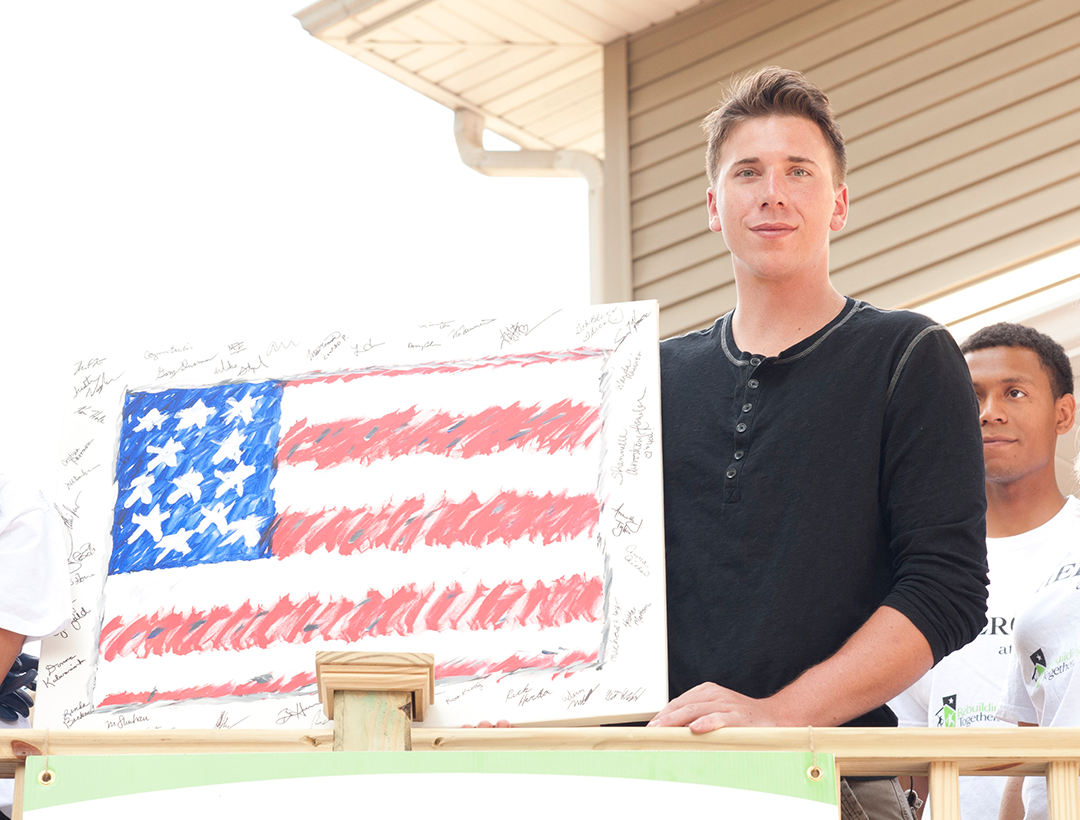Making Significant Improvements in the Lives of Veterans
In a country that values the sacrifices and service of its veterans, it's sobering to learn that nearly 13% of America's 18 million veterans are economically insecure, earning 150% of the federal poverty level or less. To compound this, the National Low-Income Housing Coalition states that housing costs are soaring, putting increasing pressure on hundreds of thousands of veterans.
To combat this issue, Rebuilding Together’s Veteran Home Repair and Modification Pilot program was designed to ensure veterans can live safely and independently at home. The Veterans Home Repair and Modification Pilot (VHRMP) program, through the U.S. Department of Housing and Urban Development, aims to bridge the gap between available services and the extreme need for veteran housing services.
Between December 1, 2020, and September 30, 2022, 32 Rebuilding Together affiliates across 26 states and the District of Columbia completed a total of 75 projects through the VHRMP program. The highest number of projects were carried out in California, which also hosts the largest number of veterans in the United States, followed by New York and Pennsylvania.
The VHRMP program serves a diverse array of veterans, reaching across different demographic groups. The program is tailored to address the specific needs of older veterans, with the largest proportion falling within the 75-84 age group and 17% being 85 or older. A significant number of veterans served were Black (35%) and Hispanic or Latinx (26%), reflecting the program's commitment to reaching diverse veteran populations and addressing the unique challenges they face.
 One of the most notable achievements of the VHRMP program is the substantial improvement in the health and well-being of veterans. The focus on single-family homes (87%) and the extensive modifications and repairs made had a major impact on the health and safety of residents, with 60% of projects expected to significantly enhance their well-being. Veterans reported a range of improvements, from better physical health to easier mobility within their homes. The reduced risk of falls and improved breathing, particularly among those with respiratory conditions, showcases the program's commitment to enhancing veterans' quality of life and independence.
One of the most notable achievements of the VHRMP program is the substantial improvement in the health and well-being of veterans. The focus on single-family homes (87%) and the extensive modifications and repairs made had a major impact on the health and safety of residents, with 60% of projects expected to significantly enhance their well-being. Veterans reported a range of improvements, from better physical health to easier mobility within their homes. The reduced risk of falls and improved breathing, particularly among those with respiratory conditions, showcases the program's commitment to enhancing veterans' quality of life and independence.
Beyond the physical improvements, the VHRMP program also addresses the mental and economic well-being of veterans. The data clearly reflects that after home repairs completed by Rebuilding Together, veterans experienced reduced stress and improved mental health. This change is critical, as mental well-being often goes hand-in-hand with physical health. Additionally, the program contributed to economic security by reducing the costs associated with home repairs and maintenance, as well as lowering utility bills. These aspects collectively highlight the program's approach to improving veterans' lives, not only in terms of their physical surroundings but also their overall security and peace of mind.
These statistics are a testament to the positive impact of the VHRMP program on veterans' lives. The data shows that veterans are not only living in safer and healthier homes but are also experiencing improved mental and physical health. The sense of independence and reduced stress resulting from these repairs cannot be underestimated. While home repairs alone cannot address all the factors influencing a person's quality of life, they have shown measurable gains in veterans' overall well-being.
Rebuilding Together's commitment to veterans has made a tangible difference in the lives of those who have served their country. It's not just about fixing houses; it's about rebuilding lives and providing veterans with the security, independence and peace of mind they deserve. Read more in our latest Veterans Impact Report here.